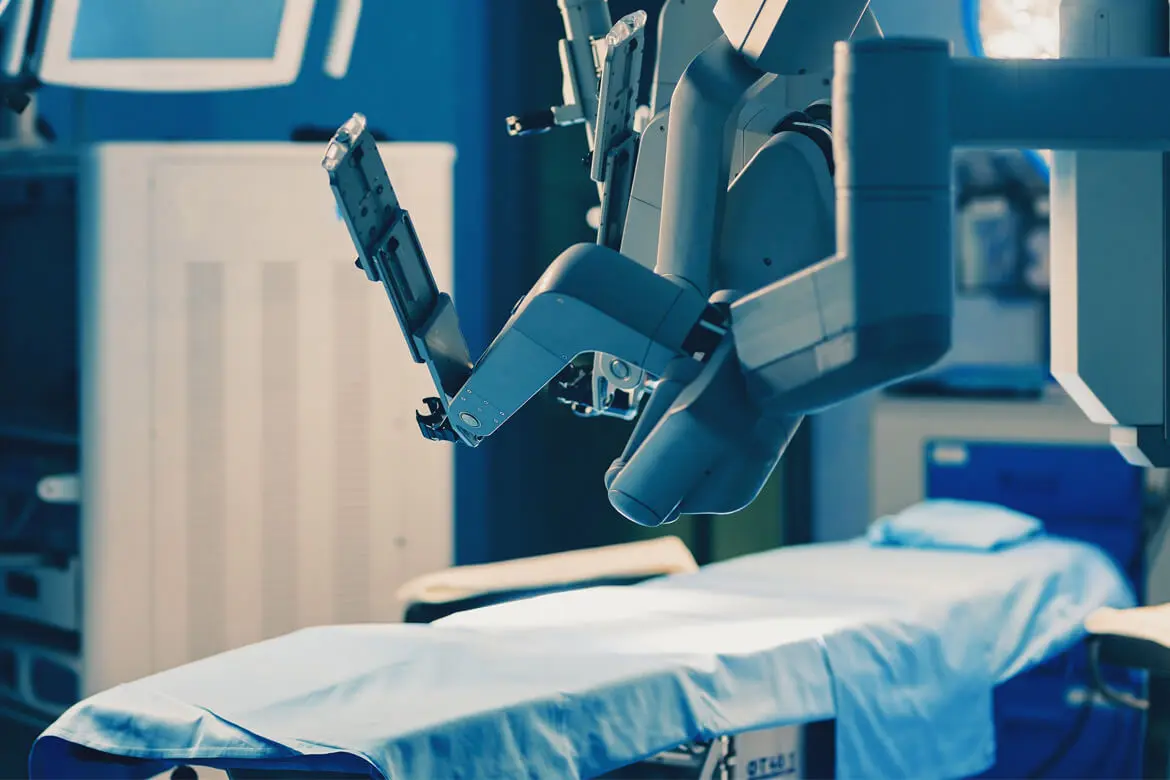Dr Tan Yeh Hong
Urologist


Source: Shutterstock
Urologist
Radical prostatectomy refers to the operation to remove the prostate gland and the tissue around it. Usually, it's recommended for men younger than 75 who have prostate cancer and are expected to live at least 10 more years with the condition.
If you have prostate cancer but it hasn't spread beyond your prostate, there's a good chance this surgery could cure you completely. However, like any surgery, it comes with a low risk of more serious complications.
Minimally-invasive prostatectomy may be recommended for those with localised prostate cancer. Sometimes known as laparoscopic surgery, it is different from open surgery, requiring several small incisions instead of one large one.
It can also be done robotically. Over the last few decades, the development of robot-assisted technology has slowly changed how doctors treat patients with cancer.
At Mount Elizabeth Hospital, the robot used to treat prostate cancer is one of the most technologically advanced in the world. It features a high-definition 3D camera and robotic arms controlled by a state-of-the-art console. It is also capable of removing the entire prostate by making only a few small incisions in the tummy area.
The robot gently frees the prostate from the bladder and urethra (water pipe), minimising the risk of damage to the surrounding nerves that control your urge to go to the toilet, as well as the risk of damage to the nerves that control your erection.
First of all, this high-tech robot gives your surgeon unprecedented control in the operating theatre.
Sitting down, your surgeon can move all of the robotic arms at the same time while using the camera to really focus on the area that needs surgery. Miniature surgical instruments mimic your surgeon's instructions precisely, minimising the room for error in the confined space of your pelvis.
"These intuitive hand controls give surgeons an additional degree of freedom as well as finer hand control," says urologist Dr Tan Yeh Hong. "The advanced 3D viewing monitor also means we can magnify the area and consider all angles when carefully removing the prostate itself."
But beyond assisting the surgeon in the operating theatre, why is a minimally invasive prostatectomy such a good thing?
"Conventionally, open surgery means a much bigger incision needs to be made in your tummy, resulting in slower recovery times and a longer stay in the hospital," explains Dr Tan. "With minimally invasive surgery, you're less likely to need long-term pain medication after surgery, and you'll probably be out of the hospital and back on your feet much quicker."
With fewer incisions, patients recover more quickly, with shorter hospital stays of 1 or 2 days, and a quicker return to normal activity, normally 1 or 2 weeks.
You're also less likely to suffer from some of the complications associated with prostatectomies, like urinary incontinence and erectile dysfunction.
Usually, the surgery takes somewhere between 3 – 4 hours, with 2 – 3 days in the hospital to recover.
Your surgeon will insert a urinary catheter (flexible tube to funnel urine out of your bladder) to give your bladder and urethra time to heal. You'll usually need to keep this in for 1 – 2 weeks after the operation, which is less time than you would probably need to keep it in if you had traditional open surgery instead.
You may be required to take a course of antibiotics to prevent infection. As with all antibiotics, you should take them as recommended by your doctor and complete the course. If you are taking medication for any existing medical conditions, especially blood-thinning medication, speak to your doctor about when you can resume taking them.
To help with post-operative pain, you may need to take some over-the-counter pain medications such as paracetamol. Stronger prescription medications such as codeine should only be taken with your doctor's advice, as they can lead to constipation.
While a minimally invasive procedure reduces your risk of complications, you may still struggle with incontinence or erectile dysfunction after a prostatectomy.
"Urinary incontinence (uncontrolled leakage of urine) is usually mild and will often improve over time," clarifies Dr Tan. "Wearing protective pads may help during your recovery period. Your doctor should also be able to recommend some exercises to help strengthen your pelvic floor muscles." If these problems persist, make sure to consult your doctor.
The risk of erectile dysfunction depends on your age, existing sexual function and swelling of the prostate. In some cases, the latter means nerve damage is unavoidable. However, your doctor may be able to provide treatment to improve this condition, so make sure you have a chat with them if you're worried.
In general, this surgery works best for patients who:
Patients with advanced prostate cancer, which has spread to other locations in the body, may not be suitable for this surgery. The same applies for patients who have severe scarring from a previous surgery.
"If you're unsure of your options, the best thing you can do is make an appointment to speak with your doctor," says Dr Tan.